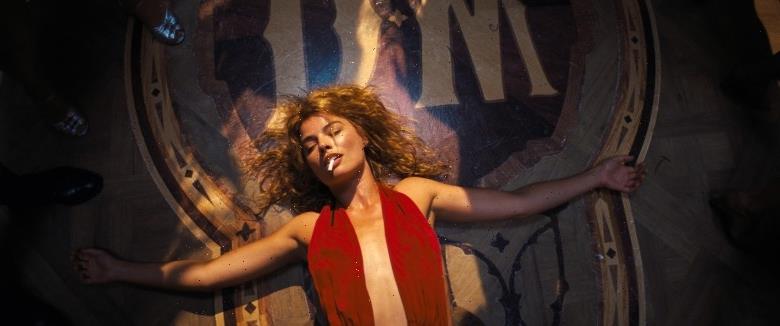
Damien Chazelle’s manic vision of a wild, wild west Hollywood heyday, “Babylon,” screened for the very first time November 14 in Los Angeles for Academy members and select press. The collective reaction in a packed, mostly enthusiastic house was, “That was a lot of movie.” Responses on Twitter (social reactions were encouraged while reviews remain under embargo ahead of the film’s wide Christmas Day release) from the press corps ranged from marveling over the film’s druggy over-the-topness to bewilderment over its wildly swinging tones. See them rounded up below.
Indeed, set in a debaucherous mid-1920s when Los Angeles was still a half-formed desert town, “Babylon” is essentially a three-hour-plus bender of a movie that pummels the audience with Boschian-level set pieces of Jazz Era decadence — mountains of cocaine, graphic overdoses, scatological humor, projectile vomiting, horror-movie-style sex dungeons, murder, suicide, and rattlesnake wrestling. Other than breakout Diego Calva, the most talked-about performance will be Margot Robbie, who plays the self-made Nellie LaRoy, a party-and-drug-addicted whirling dervish who tumbles into a Hollywood acting career after wowing a studio exec (Jeff Garlin) with her ability to cry on cue.
Though Robbie’s hardly the only center of the movie, as Chazelle’s self-described “gallery of characters” includes Brad Pitt as Jack Conrad, a fading-out actor of the Douglas Fairbanks or Valentino; Calva as Manny Torres, a PA who rises in the ranks and falls for Nelly; Jovan Adepo as jazz musician Sid Palmer; Jean Smart channeling Louella Parsons as alcoholic Tinseltown columnist Elinor St. John; Li Jun Li as the Anna May Wong-inspired Lady Fay Zhu; and many more in the gaggle best left unspoiled.
All of the above cast, along with Chazelle, were onstage Monday night for the Academy Q&A moderated by Chapman film school dean and former Hollywood Reporter editor Stephen Galloway.
Chazelle, who first started thinking of the idea a decade and a half ago, said, “The initial germ of [‘Babylon’] was… getting to know the particulars of this early pre-history of Hollywood, the American history of Los Angeles as a city, I remember one moment…reading about this weird phenomenon where, toward the end of the ’20s, there was this rash of suicides, deaths that seemed that they could’ve been suicidal, drug overdoses, a little bit coalescing with the cresting of a drug epidemic going on at the time, and I started to dig into it and was curious as to why, and found it coincided with a transition that I’d seen treated in movies like ‘Singin’ in the Rain,’ which was the transition from silent to sound. It gave this kind of brutal face to it that I was not used to seeing.”
An early cut of the movie totaled over four hours, and what darlings Chazelle had to sacrifice, the filmmaker pointed to his actors. “It was a big meal of a screenplay,” he said. “We had a whole trip to Mexico,” Margot Robbie said. “There was heaps of stuff.” There was also a “marinara food fight” involving Robbie and Smart’s characters left on the cutting room floor.
“My first question to Damien was, ‘Great, great, great. What’s going to get cut?” Brad Pitt said of first receiving the screenplay. Chazelle told him, “Nothing. I’m going to pace this thing a minute a page, and it pretty much turns out that way.”
“Terrified and excited” by the script, Robbie based her fictional character partly on Clara Bow and said that while she loves Nelly “so much,” “She’s so exhausting. She took everything from me. I had written on the front of my script, ‘Demand their full attention always.’ She did it to me. She demanded everything physically and emotionally.”
Robbie’s character whirls and writhes her way through one outrageous set piece after another in a manic performance that recalls the men of “Wolf of Wall Street” and also something on the level of Elizabeth Taylor in “Who’s Afraid of Virginia Woolf?” at least according to co-star Eric Roberts, who plays her sycophantic stage-manager father.
“By the end of the first week of shooting, I came home to my husband and said, ‘This is the hardest I’ve ever worked.’ This movie is something,” Robbie said. “Damien expects so much of you as an actor. We did our first take, and I gave it a lot. I go big on the first take… Damien comes up to me, twirling his hair as he does, which means that you haven’t given him what he needs yet, and goes, ‘Yeah, that was great. Just need way more.’ ‘More than what I just did?’ ‘Way more than that.’ That was indicative of the entire experience.”
Source: Read Full Article